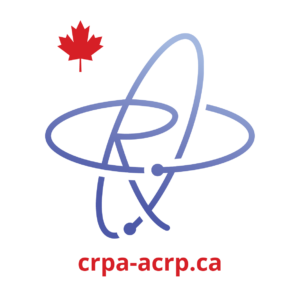Igniting a Spark: STEM Workshop for Indigenous Girls in Saskatchewan

Following a successful international mentoring workshop held in 2023, the Canadian Nuclear Safety Commission (CNSC), through the leadership of the International and Governmental Affairs Division, recommitted itself to leading and participating in another STEM Workshop for Indigenous Girls. The four-day workshop, called “Osk âyak ê wîcihisocik—Young people helping themselves,” blended science, technology, engineering, and mathematics (STEM) activities with Indigenous teachings and facilitated mentorship for 44 Indigenous high school girls from all over Saskatchewan. It was organized in collaboration with the University of Saskatchewan and several partners, including the Canadian Nuclear Association. It aligns with the CNSC’s Women in STEM Initiative and underscores the Government of Canada’s commitment to diversity and Indigenous reconciliation.
While fostering a safe and culturally empowering environment (e.g., hosting events in the Gordon Oakes Red Bear Student Centre and incorporating Indigenous leadership and ceremony), the workshop integrates Indigenous learning and STEM activities. Through immersive experiences with hydrology and veterinary simulations, a fascinating visit to the anechoic chamber, and a tour of the Canadian Light Source synchrotron, participants were exposed to various facets of STEM.
The students in the workshop had an opportunity to pick the brains of and form friendships with their Indigenous and non-Indigenous women mentors, including women from CNSC such as Karen Owen-Whitred (acting executive vice-president) and Julie Leblanc (radiation and health sciences officer). Importantly, the girls were challenged to see themselves in these roles.
The workshop was targeted at 9th grade students—a prime time to spark students’ curiosity about STEM and the nuclear field. This is a time when they are thinking about high school course selection and future university or college programs.
“Being a mentor is an important responsibility,” explains Julie Leblanc. “It is valuable for the students to learn from mentors, but it is also essential for the mentors to learn from the students—that is what successful mentorship looks like. I enjoyed my time with the students—they challenged me!”
“These workshops are a great initiative to bring awareness of STEM and the pursuit of education in general. Unfortunately, not all students receive equal opportunities, especially those strongly affected by the impacts of colonization. That is why the continued support of these types of workshops is critical!” Julie says.
As highlighted by the International Commission on Radiological Protection’s Vancouver Call for Action, it is imperative that radiation research and radiation protection organizations (like the CRPA) invest in education to ensure expertise is built, maintained, and enhanced to fulfill current and future radiation protection and regulatory needs. Indeed, this applies to the very beginning of the radiation protection expertise pipeline—STEM awareness!
Workshops like this also go hand-in-hand with reconciliation initiatives—Indigenous Peoples need to be at the “nuclear table.” Current and future nuclear projects depend on it.
Watch for future Indigenous mentoring workshops, but don’t wait to act! Support, invest, create, lead, and participate in STEM outreach! Future radiation protection professionals are depending on you!
 Julie Leblanc
Julie Leblanc
Julie is currently on assignment as a project officer with the Advanced Reactor Licensing Division at the Canadian Nuclear Safety Commission. Her previous roles include Women in STEM (WISTEM) special advisor, and radiation and health sciences officer. She is also a member of the CRPA International Liaison Committee because of her experience working with the Canadian Organization on Health Effects from Radiation Exposure (COHERE), the International Commission on Radiological Protection (ICRP), and the Nuclear Energy Agency (NEA).
 Jessica Beaudry
Jessica Beaudry
Jessica is part of the Canadian Nuclear Safety Commission’s International and Government Affairs Division, currently acting as a senior international relations officer, who is working to improve gender balance in the nuclear sector. She has a diverse background, brimming with a multitude of experiences across various sectors, including human resources, marketing, financial planning, and construction.
Do you want to read more articles like this?
The Bulletin is published by the Canadian Radiation Protection Association (CRPA). It’s a must-read publication for radiation protection professionals in Canada. The editorial content delivers the insights, information, advice, and valuable solutions that radiation protection professionals need to stay at the forefront of their profession.
Sign up today and we’ll send you an email each time a new edition goes live. In between issues, check back often for updates and new articles.
Don’t miss an issue. Subscribe now!
Subscribe

 Julie Leblanc
Julie Leblanc Jessica Beaudry
Jessica Beaudry
